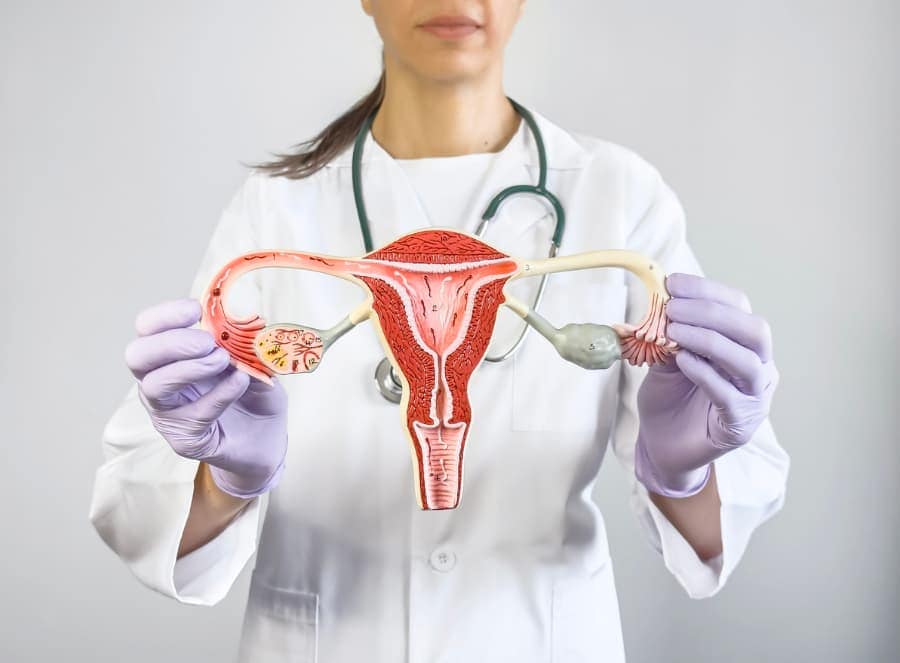Ovarian cancer is a common type of gynecological cancer. According to the National Ovarian Cancer Coalition, one in 78 females receive an ovarian cancer diagnosis in their lifetime. The five-year survival rate for early-stage ovarian cancer is 90%. However, four out of five diagnoses occur after the cancer has spread beyond the ovaries.
At Richmond University Medical Center, our award-winning physicians in our oncology department rely on their extensive training and leverage state-of-the-art equipment and treatment methods to help patients in Staten Island, New York, fight numerous types of cancers. Here, we talk about the early signs of ovarian cancer.
What Is Ovarian Cancer?
Ovaries are one part of the female reproductive system. They are round, walnut-sized organs that release your eggs during your child-bearing years.
Ovarian cancer is a growth of abnormal cells in the ovaries. These abnormal cells can multiply quickly, grow out of control, and invade your ovaries, fallopian tubes, uterus, and other nearby organs. This type of cancer is most prevalent in Native American and Caucasian populations, but women of any race can develop it.
There are three types of ovarian cancer:
- Germ cell: These tumors develop in the egg-producing ova.
- Stromal: These tumors develop in the structural cells that produce female hormones.
- Epithelial: These tumors cover the outer lining of the ovary.
Symptoms and Early Warning Signs of Ovarian Cancer
During the first stages of ovarian cancer, it may not present with any noticeable signs or symptoms. If symptoms do appear, they are similar to other conditions, such as irritable bowel syndrome, constipation, heartburn, or urinary tract infection. These “silent warning signs” are easy to overlook.
Bloating
A small amount of bloating is normal, especially if you are on your menstrual period or eat fatty foods. However, bloating that does not go away is a common symptom of ovarian cancer. Patients with ovarian cancer have described this bloating in the following ways:
- Feels like you are pregnant
- Makes it difficult to zip or button your pants
- Causes clothes to dig into your waist
The backup of fluid in your abdomen causes bloating. It occurs due to changes in the blood supply and your ability to drain fluid. Fluid building up can cause free-floating cancer cells to move throughout your abdomen.
Pelvic or Abdominal Pain
Pain in the pelvis or abdomen is one of the symptoms most patients with cancer experience. The pain can vary. It can feel like intense pressure, menstrual cramping, or as though you are being squeezed from inside. Growing tumors pushing on your bladder, bowels, rectum, or spine cause you to feel pain.
Changes in Bowel Movements
Ovarian cancer can cause constipation, diarrhea, or a fluctuation between the two. It might also affect your urination. It may cause you to need to urinate more often or feel a sense of urgency to urinate. You may also experience a burning sensation while urinating or feel like your bladder is full even after going to the bathroom.
Back Pain
Back pain is another common symptom. Since most back is caused by injury and affects millions of people every year, you may not attribute it to cancer. If you do not remember injuring your back and your pain is not getting better with treatment, talk with your provider.
Changes in Appetite
Acid reflux or another digestive condition can affect your appetite. You may feel full after eating a small amount, or you might not have any appetite at all. You may also experience indigestion, nausea, or vomiting. These changes in your appetite can result in unintended weight loss.
Menstrual Changes
Ovarian cancer can affect your cycle in several ways. You may notice more bleeding or spotting when you are not on your period. You may also experience:
- Abnormally heavy bleeding during your period
- Missed periods or irregular cycles
- Vaginal discharge
Period changes can be a hormonal problem or a symptom of ovarian cancer. If you notice any changes that are concerning, talk to your gynecology provider.
Pain During Intercourse
Painful sex is a symptom that some women might not notice because it can be caused by other conditions. Vaginal dryness, endometriosis, inflammation, and vaginismus are more common causes of pain during intercourse, but if you have other symptoms of ovarian cancer, it might be an indicator.
Early Detection Is Key
Ovarian cancer is easy to treat during its early stages. However, many people do not notice any symptoms until it has started to spread, which lowers their survival rate. You know your body. If you experience any of these symptoms, follow up with your primary care provider on Staten Island or another healthcare professional.
Schedule an Appointment About Ovarian Cancer Today
At Richmond University Medical Center, our board-certified physicians perform routine cancer screenings to help find and treat cancer while it is treatable. We offer comprehensive care, advanced diagnostic, and specialized treatment for a variety of cancers, including ovarian. If you are experiencing any of the signs of ovarian cancer, contact us today to schedule an appointment.




